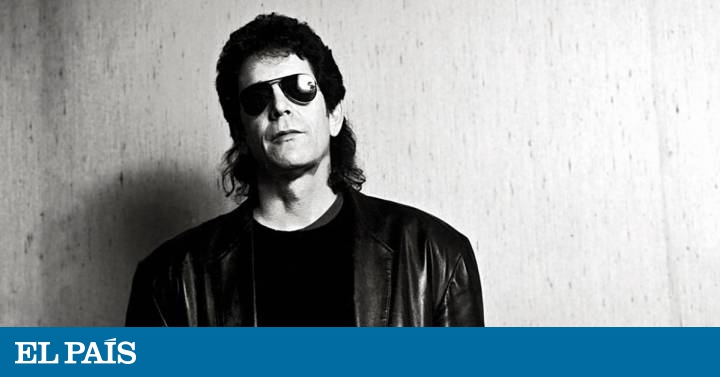Today seems unthinkable, but there was a time when Lou Reed was not considered one of the greats.
To be seen in the eyes of all, beyond close colleagues by profession, for what he is: a rock giant.
Perhaps his most foul-mouthed and fierce giant, a true intrepid artist who from his years in the Velvet Underground could rub shoulders with the great creators of music.
That time was the eighties, when the contradictory and unpredictable composer lacked a well-deserved space in the pantheon of popular recognition.
It is something that Reed himself ruminated in silence in those years while participating in charity galas and various events.
One of them was decisive: the party in honor of Bob Dylan for his artistic achievements that the Whitney Museum in New York dedicated to him in November 1985.
Reed came, but surrounded by other guests such as Pete Townshend, David Bowie, Billy Joel, Roy Orbison or Yoko Ono, he felt uncomfortable.
Why did he not have any such distinction?
Why were the great icons of the pop era, such as Dylan himself, John Lennon, Paul McCartney or Keith Richards, generally recognized and he was ignored?
The New York underworld portraitist was admired and influential to the point of having inspired an entire aesthetic in the previous decade that led to New York punk and the new wave of music until the birth of
indie
, but high culture had him cornered.
An album served to end that:
New York,
released in 1989. A work that is now reissued remastered with unpublished studio and live material.
In total, 26 unreleased studio and live songs rescued from the Lou Reed Archive, as well as a DVD with a concert from the period that has been discontinued for years.
It may be my favorite Lou Reed album, although, as with all great creators, this "favorite album" phrase ends up being a trap.
There is always a favorite album ready to be replaced by another.
Either way,
New York
is always an undeniable masterpiece.
An album with which its author not only broke that glass ceiling with respect to its popular recognition, but also returned to offer new emotional edges on the New York universe.
His universe.
There are two types of New York: the one for movies, novels, plays, and songs, and the one for Lou Reed.
The latter is harsh and raw but real as that deadly voice with which he spits cheeky verses and shoots
punchy
riffs
on his records.
It is a New York out of figuration.
In Reed's own words when the album came out: “Faulkner had the South of America;
Joyce, Dublin;
I have New York and its surroundings ”.
Lou was no fool comparing himself to Faulkner and Joyce.
Who better to value yourself than yourself?
Who better to tell everyone that his was at the height of great culture, high culture or whatever it is said in the ministries, government offices, literary circles, museums and national awards committees?
Whatever they say in
The New York Times
, which received the record saying "it was time to start taking Lou Reed seriously."
They took it, despite the fact that the sales were fabulous.
Cocky like any artist who knows himself to be very good, ambitious like any genius, implacable as only the author of
Transformer
and
Berlin was
, Lou Reed, whose aspiration as a writer always accompanied him, put himself in the place he wanted to be, even if he had always known move like an
underground
guru
.
With the melancholic backdrop of AIDS, this New York is different from the microcosm of pimps, whores, drugs and wild nocturnality that it had shaped in previous works.
In
New York
beats a new literary desire with a Reed without grandiloquence, tracing the songs as short stories, hard and accurate vignettes of a city under siege, very impoverished, with skyrocketing crime and full of fanatical adolescents, battered women, exploited immigrants and racist preachers.
Or in other words: showing how the independent republic of New York as resistance to the Reagan era had been a failure.
In the eighties, those fatal years for rock, there are two New York: Public Enemy and Lou Reed.
That of
unstoppable
hip hop
, of black pride and fighter, and that of dry, urgent and unforgiving rock by Lou Reed, his great white observer.
Jonathan Cott, one of America's best music critics, said: "This Lou Reed album makes
Bob Dylan's
Desolation Row
look like a weekend excursion to the Hamptons next to it."
True:
New York
had greed, hypocrisy, ugliness, corruption ... and a lot of truth.
As I once read to my colleague Rafa Cervera, Reed had the virtue of “showing the infinite colors that the truth has”.
Here he took out a new palette.
The palette created by the great New York beggar wanting to be seen and treated as Dylan, as one of the greats, as the musical colossus that he was and ended up being.
Like Lou Reed, prince of the raggedy, rock poet.

